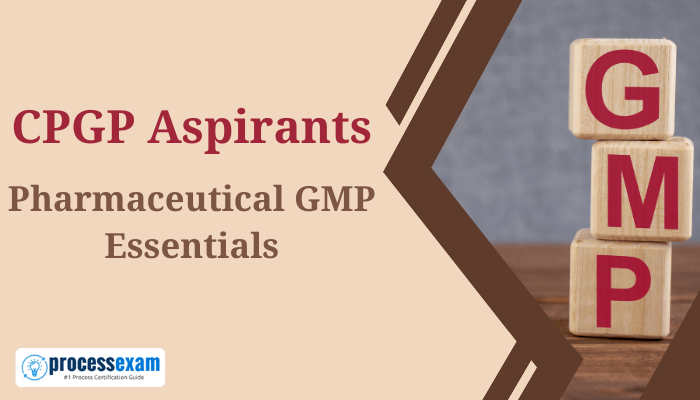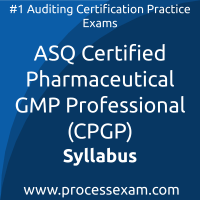
The pharmaceutical industry is one of the most regulated sectors globally, ensuring that products meet the highest quality, safety, and efficacy standards. At the heart of these regulations is Good Manufacturing Practice (GMP). Obtaining the ASQ Certified Pharmaceutical GMP Professional (CPGP) certification is a significant step for professionals looking to establish or advance their careers in this field.
This article will guide you through the basics of Pharmaceutical GMP and provide valuable insights for CPGP aspirants.
Pharmaceutical GMP: What You Need to Know?
Pharmaceutical Good Manufacturing Practices (GMP) are a set of regulations that manufacturers must follow to ensure their products are produced consistently and controlled according to quality standards. These practices cover all aspects of production from the raw materials, premises, and equipment to the training and personal hygiene of staff. Proper GMP is crucial because it ensures that products are made with the highest standards of safety and quality, minimizing risks associated with pharmaceutical production and distribution.

 To achieve the professional designation of ASQ Certified Pharmaceutical GMP Professional from the ASQ, candidates must clear the CPGP Exam with the minimum cut-off score. For those who wish to pass the ASQ Pharmaceutical GMP Professional certification exam with good percentage, please take a look at the following reference document detailing what should be included in ASQ Pharmaceutical GMP Professional Exam preparation.
To achieve the professional designation of ASQ Certified Pharmaceutical GMP Professional from the ASQ, candidates must clear the CPGP Exam with the minimum cut-off score. For those who wish to pass the ASQ Pharmaceutical GMP Professional certification exam with good percentage, please take a look at the following reference document detailing what should be included in ASQ Pharmaceutical GMP Professional Exam preparation.